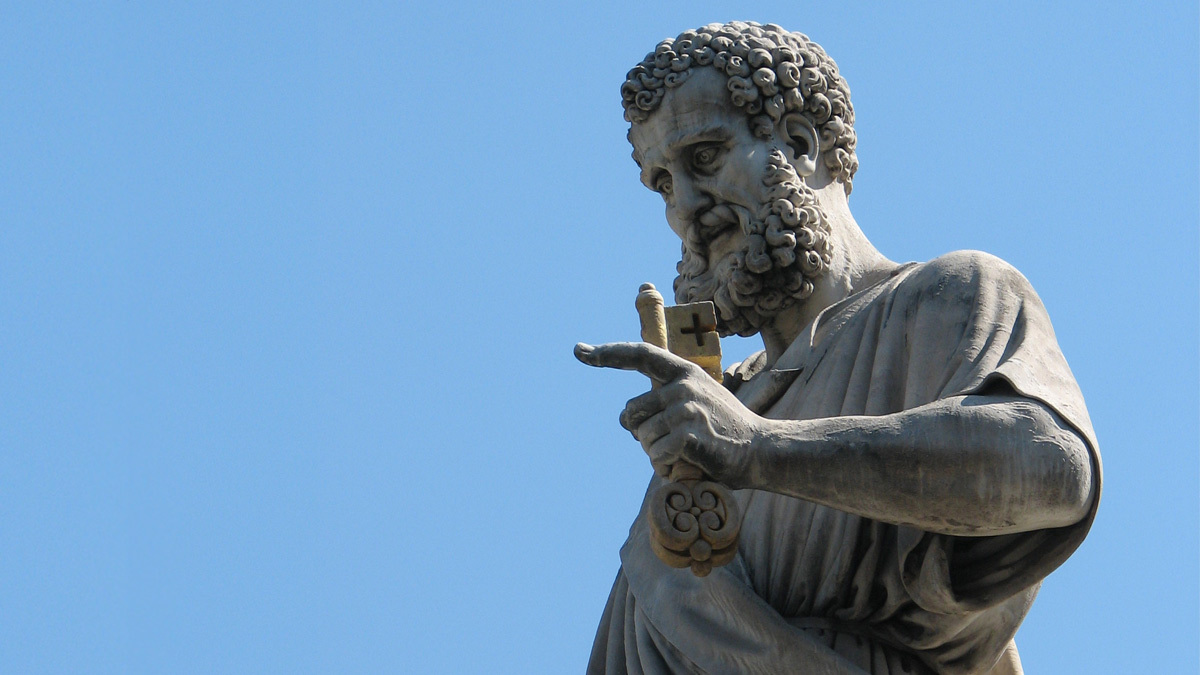
Papal infallibility is a term that often sparks curiosity and debate. But what does it really mean? In simple terms, papal infallibility refers to the belief that the Pope, when speaking ex cathedra (from the chair of Saint Peter), is free from error in matters of faith and morals. This concept was formally defined in 1870 during the First Vatican Council. Many people think it means the Pope is always right, but that's not the case. It's only about specific teachings on faith and morals. Want to know more? Here are 25 intriguing facts about papal infallibility that will clear up common misconceptions and provide a deeper understanding of this fascinating doctrine.
What is Papal Infallibility?
Papal infallibility is a doctrine of the Catholic Church. It states that the Pope is incapable of error when proclaiming a definitive doctrine on faith or morals. This concept has sparked much interest and debate over the years.
- The First Vatican Council in 1870 formally defined papal infallibility.
- It applies only when the Pope speaks ex cathedra, meaning "from the chair" of Saint Peter.
- The doctrine does not imply that the Pope is infallible in all his personal actions or statements.
- Only two papal statements have been declared infallible since the doctrine was defined.
- The first infallible statement was the Immaculate Conception of Mary in 1854.
- The second was the Assumption of Mary in 1950.
Historical Context
Understanding the historical backdrop helps grasp why papal infallibility became a formal doctrine. The church faced numerous challenges and needed a clear stance on certain issues.
- The concept has roots in early Christianity but was not formally defined until the 19th century.
- The Protestant Reformation in the 16th century challenged the authority of the Pope.
- The First Vatican Council aimed to strengthen the Pope's authority amid rising secularism.
- The doctrine was partly a response to the growing influence of rationalism and modernism.
Conditions for Infallibility
Not every statement by the Pope is infallible. Specific conditions must be met for a declaration to be considered infallible.
- The Pope must intend to teach by virtue of his supreme apostolic authority.
- The doctrine must concern faith or morals.
- The Pope must clearly define the doctrine as one that must be held by all the faithful.
- The teaching must be intended for the entire Church, not just a particular group or region.
Misconceptions
Many people misunderstand what papal infallibility means. Clearing up these misconceptions is essential.
- Infallibility does not mean the Pope is free from sin.
- It does not mean the Pope cannot make mistakes in judgment or administration.
- The Pope is not infallible in scientific or historical matters.
- Infallibility does not apply to casual remarks or unofficial statements.
Impact on the Church
The doctrine of papal infallibility has had significant effects on the Catholic Church and its followers.
- It has reinforced the central authority of the Pope.
- The doctrine has been a point of contention in ecumenical dialogues with other Christian denominations.
- It has influenced the way Catholics view the teachings of the Pope.
- The doctrine has been invoked sparingly, maintaining its gravity and significance.
Modern Perspectives
In today's world, papal infallibility continues to be a topic of interest and debate.
- Some theologians argue for a broader understanding of infallibility that includes the Church's magisterium.
- Critics argue that the doctrine is outdated and incompatible with modern democratic values.
- Despite debates, the doctrine remains a cornerstone of Catholic theology and ecclesiology.
Final Thoughts on Papal Infallibility
Papal infallibility, a cornerstone of Catholic doctrine, often sparks curiosity and debate. Rooted in the First Vatican Council of 1870, it asserts that the Pope, when speaking ex cathedra on faith and morals, is preserved from error. This belief underscores the Pope's unique role as the spiritual leader of over a billion Catholics worldwide. While not frequently invoked, its significance remains profound, shaping theological discussions and guiding the faithful. Understanding this concept helps appreciate the depth and complexity of Catholic teachings. Whether you're a devout believer or just curious, knowing these facts about papal infallibility offers a glimpse into the rich tapestry of religious history and doctrine. Keep exploring, questioning, and learning—there's always more to uncover in the vast world of faith and tradition.
Was this page helpful?
Our commitment to delivering trustworthy and engaging content is at the heart of what we do. Each fact on our site is contributed by real users like you, bringing a wealth of diverse insights and information. To ensure the highest standards of accuracy and reliability, our dedicated editors meticulously review each submission. This process guarantees that the facts we share are not only fascinating but also credible. Trust in our commitment to quality and authenticity as you explore and learn with us.


